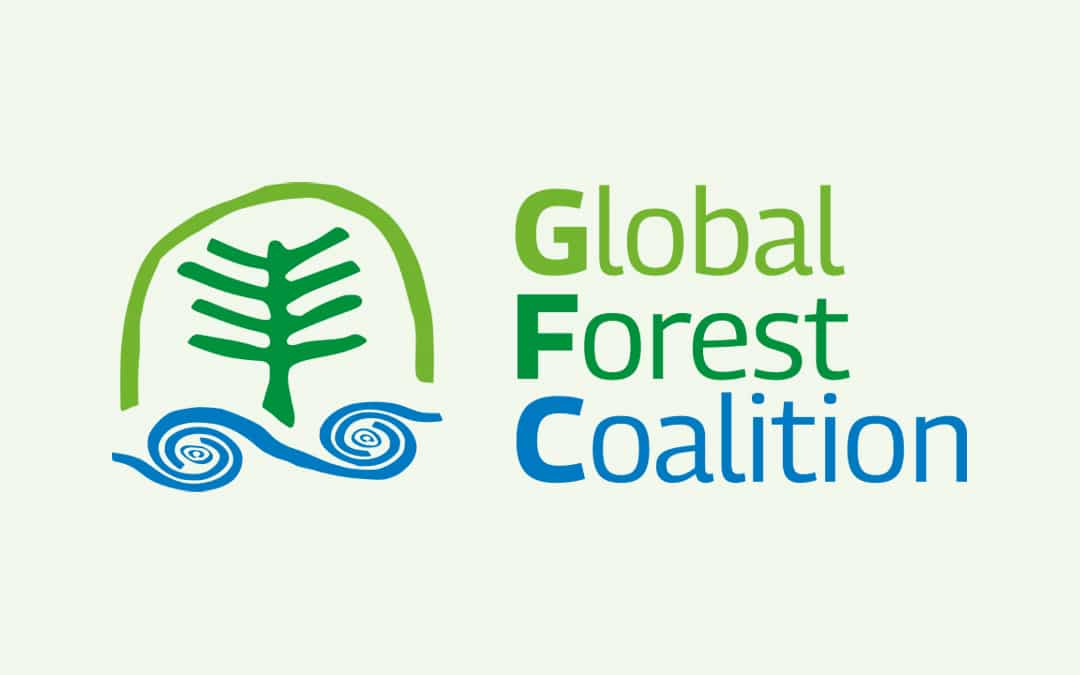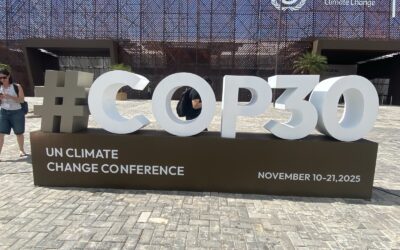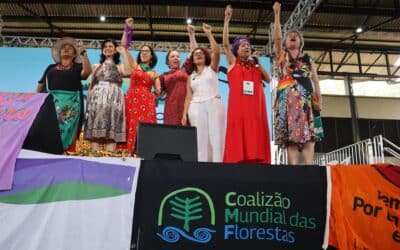MARCH TO KEEP WORLD BANK OUT OF CLIMATE FINANCE
DATE: Wednesday, Dec 8th
TIME: gather 9:30am, march at 10am
LOCATION: rally and march leaving from Palacio Municipal
Rally will be MCed by Ricardo Navarro – Friends of the Earth El Salvador, Beverly Keene – Jubilee South Americas, Primo Rivera-Freedom From Debt Coalition and feature speakers from World Bank-affected communities from around the world.
We march to 0KM and return to the Muncipal Hall by 11:30am where we will smash a giant pinata pig representing the World Bank!
—
CANCUN, MEXICO – As talks on long term climate finance for developing countries heat up today in Cancun, campaigners from around the world condemned rich countries’ efforts to carve out a special role for the World Bank in managing these funds.
Campaigners are furious that the World Bank is being promoted as the hub for climate finance. They insist that because the institution continues to bankroll dirty fossil fuel projects to the tune of $6.6 billion last year alone – they are in the wrong hands for the funds to fight climate change. They also cite the Bank’s recent history of imposing climate finance as loans, creating new debt for already impoverished countries, increasing the role of the private sector and imposing economic policy conditions that increase inequality.
The coalition of diverse groups from developed and developing countries launched a new campaign ‘World Bank our of climate finance’ today calling on governments to resist any role for the institution in climate finance. They are particularly angry that in an early draft of the negotiating text, the World Bank has been invited to serve as the interim trustee of a new global climate fund – and potentially its secretariat.
In response, 200 organisations from around the world, including Jubilee South, Friends of the Earth International and the Pan African Climate Justice Alliance have signed an open letter to governments at the Cancun negotiations stating that the nature, structure, track record, and policies of the World Bank and other development banks contradict what should be the principles of fair and effective climate finance.
Ian Rivera, from Freedom from Debt Coalition (FDC) – Philippines said:
“It’s outrageous that the World Bank is being forced on to developing countries. Peoples of developing countries do not want to work with the World Bank in order to access much needed climate finance. Based on bitter experience, they know that the World Bank will increase their debts and poverty and will undermine their human rights and their independence. That’s why we have launched a new campaign to stop the World Bank being imposed on developing countries who need climate finance to cope with climate change.”
Campaigners are also angry that they are not being allowed to campaign against the World Bank inside the UN talks. They have been told that permission will not be granted for any protest that mentions the World Bank, so they are being forced to march and protest away from the conference centre.
Muhammad Reza, from KRUHA (People’s Coalition for the Right to Water)-Indonesia said;
“We are not allowed to even whisper the World Bank’s name in a negative context within the UN. This is silencing civil society in a space where civil society’s voice must be heard and must be listened to.”
The UK government is believed to be playing a key role in pushing for the World Bank to take the role of climate finance manager, and provides over 80 per cent of its climate finance through the World Bank, with 60 per cent as loans to developing countries.
Kirsty Wright, from the World Development Movement said:
“Donor countries, in particular the UK, are unfairly pushing for climate finance to be channelled as loans through the World Bank. Rich countries are undemocratically imposing the World Bank into these talks. The current negotiating text goes further than the Copenhagen Accord, by specifically inviting the World Bank to become the manager of climate finance. The World Bank cannot be trusted with climate finance given that it is a leader in investing in fossil fuel projects, like coal power stations. It’s absolutely disgraceful, and we will resist this strongly together with our allies from around the world.”
ENDS
For more information/interviews, please call Kate Blagojevic on 00447711875 345
Notes to editors
A full text of the letter and signatories to governments is below:
An Open Letter to the Governments
Meeting at the 16th COP of the United Nations Framework Convention on Climate Change (UNFCCC) in Cancun
People and communities throughout the global South need hundreds of billions of dollars each year to deal with the impacts of climate change, build resiliency and adopt alternative development pathways. The cost of compensation for past, present, and future damages due to climate change will only grow if, in addition, the necessary measures, are not taken in the industrialized countries to make a just transition to equitable, non-fossil fuel based economies.
We call on the governments of the world to comply with their obligations to ensure that new and additional public resources for climate finance are made available now in a way that is founded on the principle of historical responsibility, does not add to debt burdens, and is free from policy conditionalities.
We urge you to set up a Global Climate Fund under the authority of the UNFCCC that has an equitable governance structure, prioritizes the participation of affected communities, operates with full transparency, democracy, participation and accountability, and provides direct access to funding.
The World Bank and other multilateral development banks must not be given a role in establishing or governing the new Global Climate Fund nor in managing climate finance. Their nature, structure, track record, and policies, stand in contradiction to what should be the principles of fair and effective climate finance, and the structure and operations of a new fund.
• The World Bank is a lending institution that has long been imposing policy conditions and programs on South countries and peoples through its loans. Giving a role to the World Bank in climate finance will result in a significant part of climate finance flowing as loans, and will very likely come with conditionalities,
• The World Bank’s governance structures are undemocratic, with representation dominated by governments of rich, industrialized countries The Global Climate Fund should have a majority representation of South countries in its governance structure since they are the world’s majority and most affected by climate change. The needs and rights of communities impacted by climate change, and the transition to equitable and sustainable economies based on sovereign, democratic control and governance of natural resources must be at the center of decision-making on climate finance.
• The World Bank has a long track record of undermining human rights and ecological integrity. For example, in 2010 alone, the World Bank financed a record high $6.3 billion to fossil fuel projects, a 138% increase over the previous year. An institution that actively promotes the causes of global warming should not be given a role in global climate finance. Rather, it must be pressed to end such policies and practices, including the many false solutions that the Bank is now promoting.
• The World Bank actively privileges the private sector and private capital markets over public interests. Climate finance must be used to support the public good, not to promote private profit and the commodification of nature. It must come in the form of public resources, not rely on market-based programs for its generation and application. Innovative tools for raising public resources are already in our reach including redirecting fossil fuel subsidies and military spending, and taxing financial speculation.
We call on you, the governments of the world, to keep the World Bank and other multilateral development banks out of the new Global Climate Fund and out of climate finance.
Signed,
(initial list only….)
International and Regional Organizations and Networks
ActionAid
Amigos de la Tierra – América Latina y el CAribe (Friends of th Earth Latin America / Caribbean)
Campaña Mesoamericana para la Justicia Climática – Mesoamerican Campaign for Climate Justice
European Network on Debt and Development (EURODAD)
Friends of the Earth International
Federación de Amigos de la Tierra / Friends of the Earth Federation
Focus on the Global South
Jubilee South
JS-Asia/Pacific Movement on Debt and Development
Jubileu Sul Américas – Jubilee South Americas
LDC Watch
Pan African Climate Justice Alliance – PACJA
South Asian Alliance for Poverty Eradication
Country Organizations
BANGLADESH
Bangladesh Jatiyo Sramik Jote
Community Development Library – Bangladesh
Bangladesh Krishok Federation
VOICE – Bangladesh
EquityBD – Bangladesh
Campaign for good Governance (SUPRO)
INDIA
Indian Social Action Forum – India
INDONESIA
Institute for Essential Services Reform – Indonesia
Koalisi Anti Utang – Indonesia
KruHA (People’s Coalition on Rights to Water) – Indonesia
Solidaritas Perempuan – Indonesia
NEPAL
National Alliance for Human Rights and Social Justice – Nepal
Rural Reconstruction Nepal
GEFONT – Nepal
PAKISTAN
Pakistan Kissan Rabita Committee
Labour Party Pakistan
PHILIPPINES
Freedom from Debt Coalition – Philippines
SANLAKAS – Philippines
Philippine Movement for Climate Justice (PMCJ)
Koalisyon ng Pabahay sa Pilipinas (KPP)-(Coalition for Housing Rights-Philippines)
MAKABAYAN-Pilipinas
Bukluran Student Alliance PLM – Philippines
ARGENTINA
Diálogo 2000 / Dialogue 2000 – Argentina
BRAZIL
Sindicato dos Professores de Nova Friburgo e Região / Union of Professors, Nova Friburgo and Region, Rio de Janeiro – Brazil
Amigos da Terra Brasil / Friends of the Earth – Brazil
Rede Brasil sobre Instituições Financeiras Multilaterais – Brazil Network on Multilateral Financial Institutions
Fórum Mudanças Climáticas e Justiça Social – Brasil / Brazil Forum on Climate Change and Social Justice
Instituto Políticas Alternativas para o Cone Sul – PACS / Institute of Alternative Policies for the Southern Cone PACS – Brazil
Jubileu Sul Brasil – Jubilee South Brazil
COSTA RICA
Red Costarricense de Agendas Locales de Mujeres RED CALM ACAMUDE / Costa Rican Network of Local Women´s Agendas
EL SALVADOR
Unidad Ecológica Salvadoreña UNES – Salvadoran Ecological Unit UNES – El Salvador
HONDURAS
Bloque Popular Honduras / Popular Block Honduras
MEXICO
Otros Mundos AC/Amigos de la Tierra México / Other Worlds – Friends of the Earth Mexico
PANAMA
FRENADESO – Panamá (National Front on Economic and Social Rights) – Panama
KENYA
Daughters of Mumbi Global Resource Center – Kenya
BELGIUM
11.11.11 – Belgium
ITALY
CRBM – Italy
SPAIN
Ecologistas en Accion – Spain
UNITED KINGDOM
Jubilee Debt Campaign – UK
World Development Movement – UK
UNITED STATES of AMERICA
Institute for Policy Studies – Sustainable Energy and Economy Network – USA




